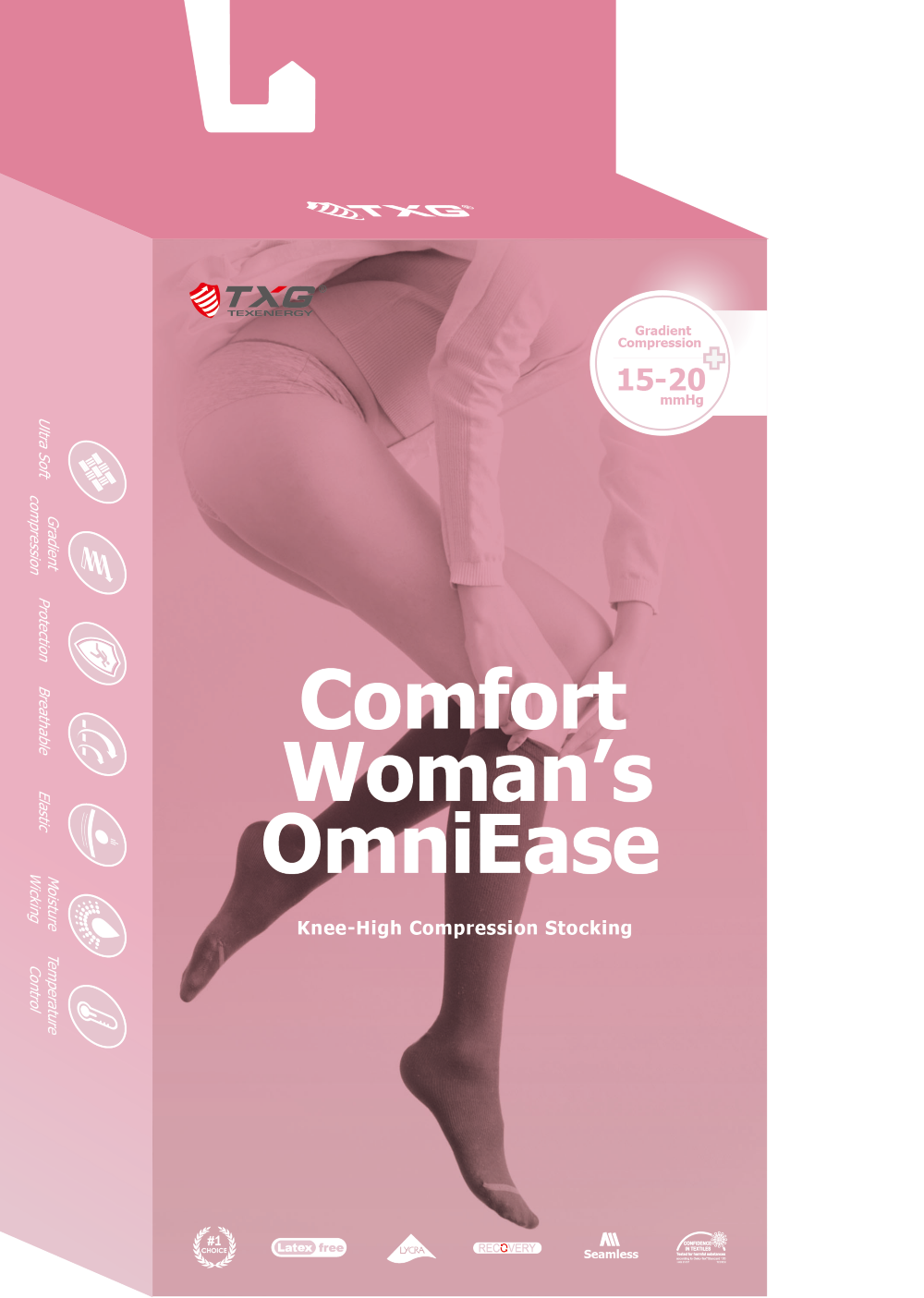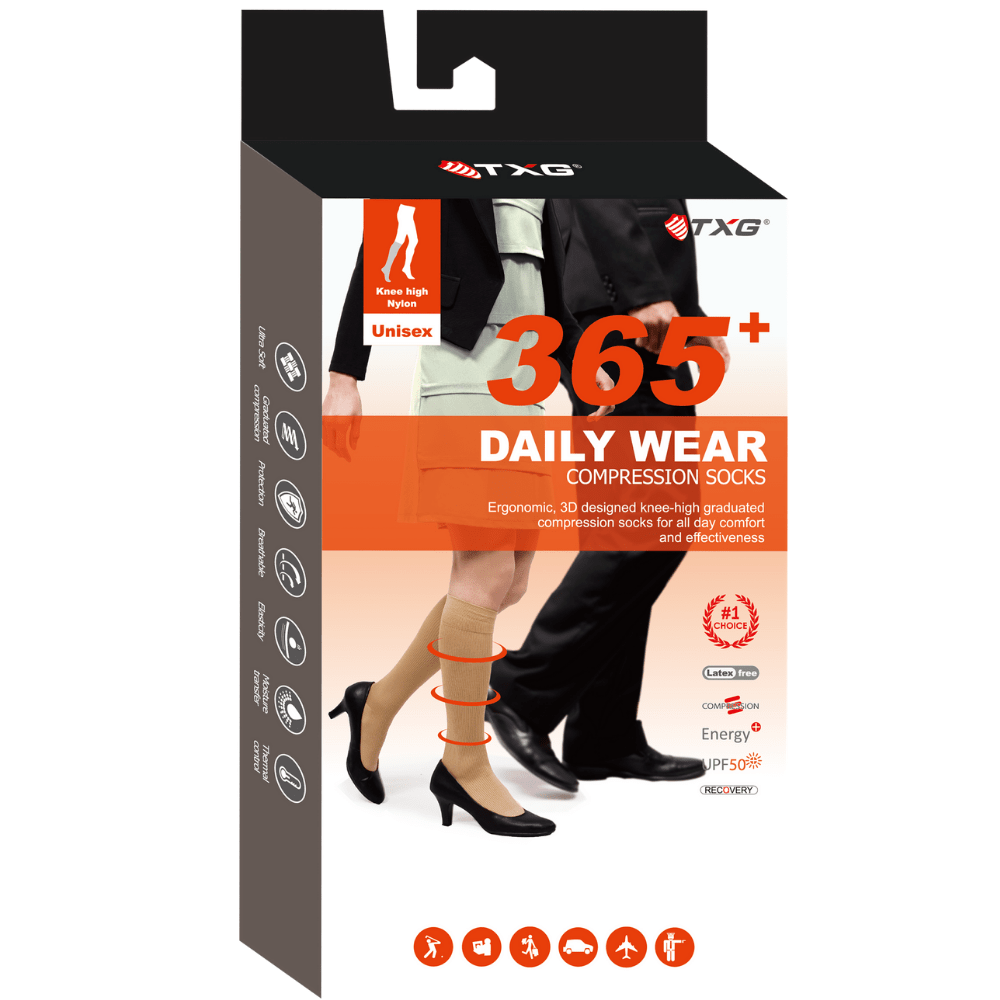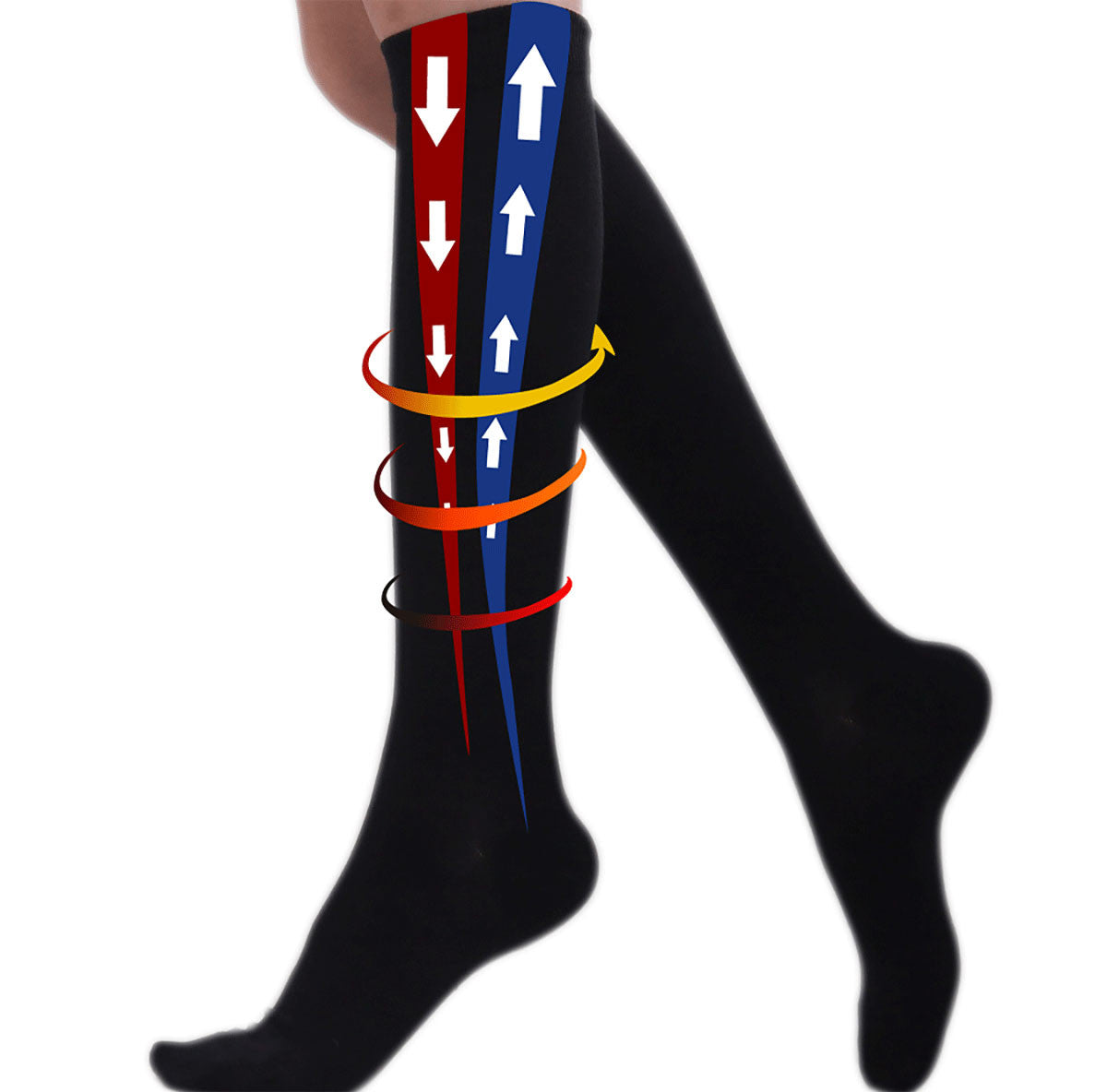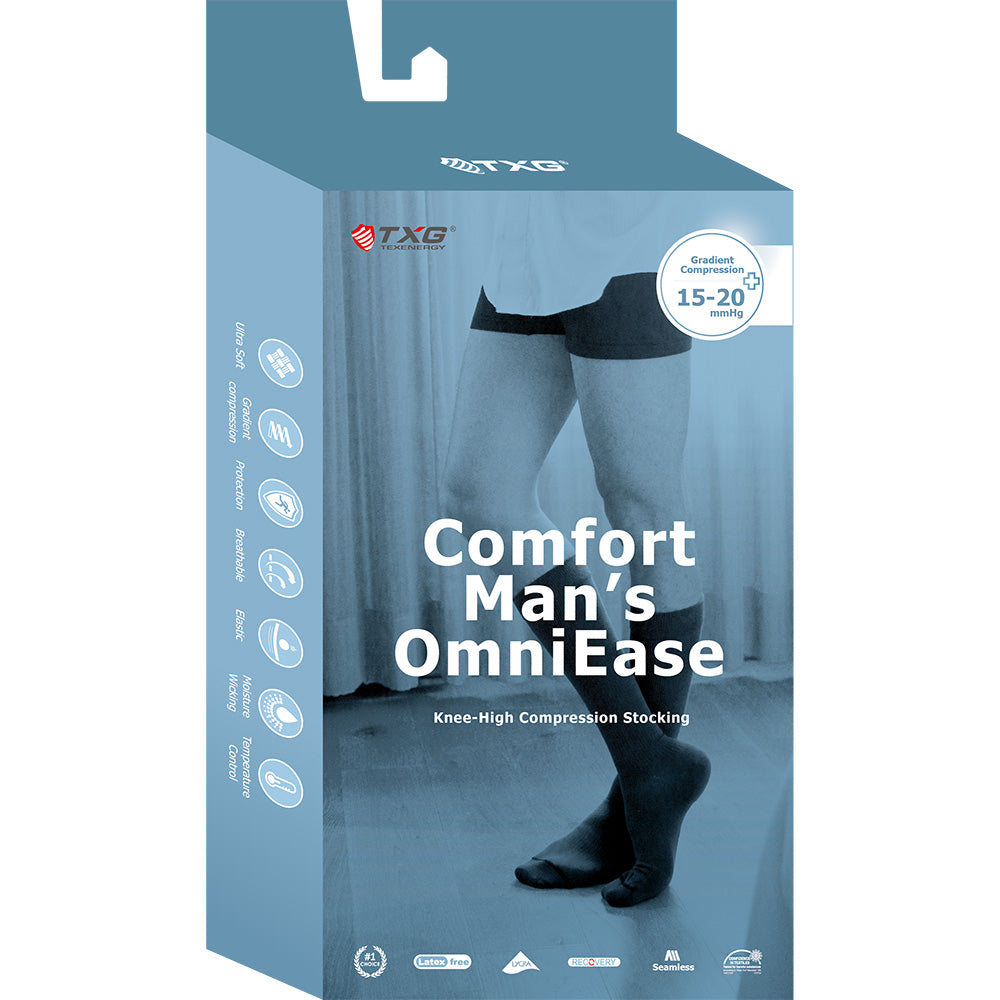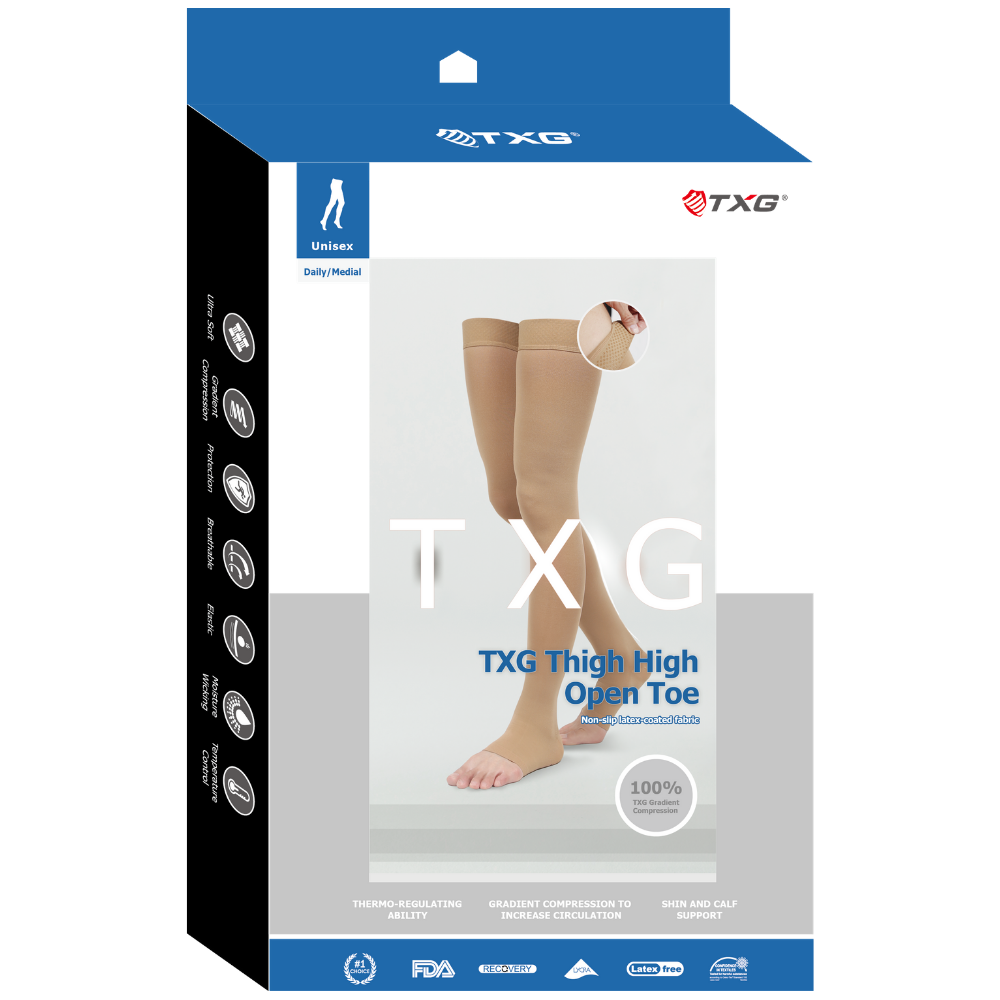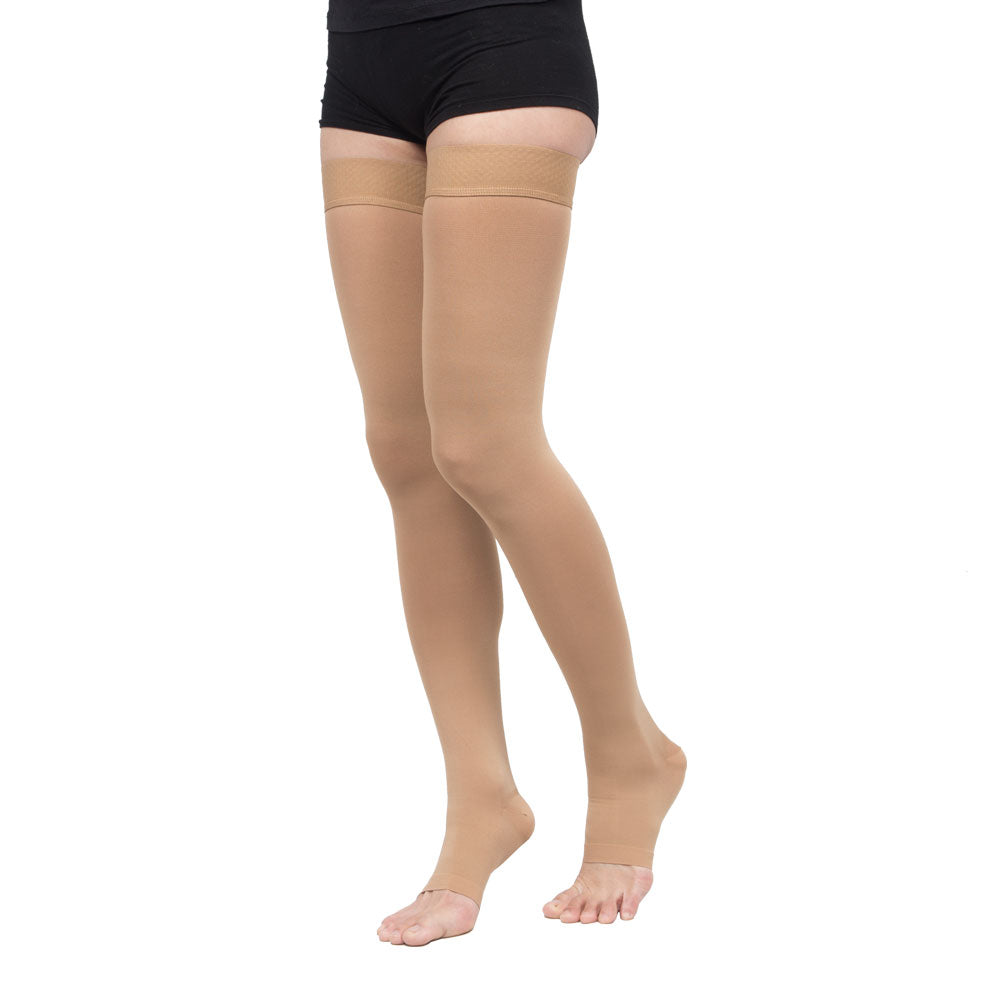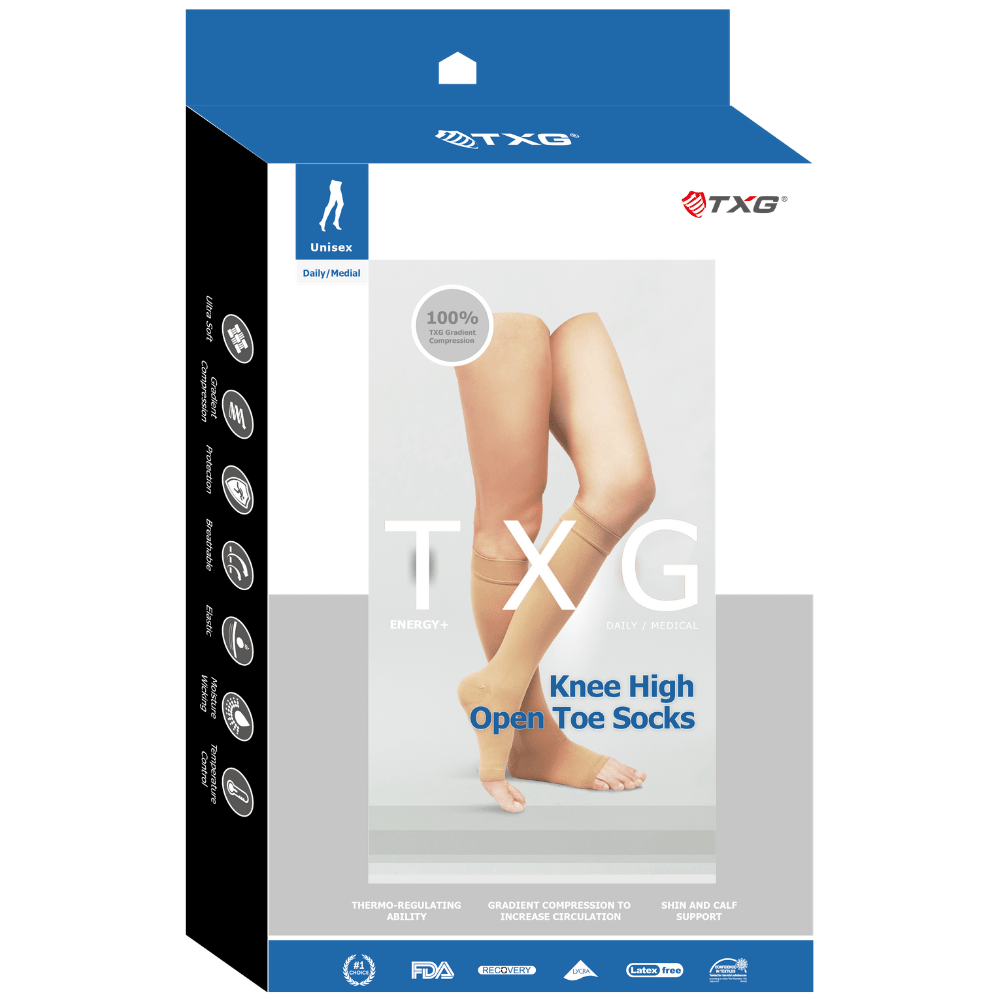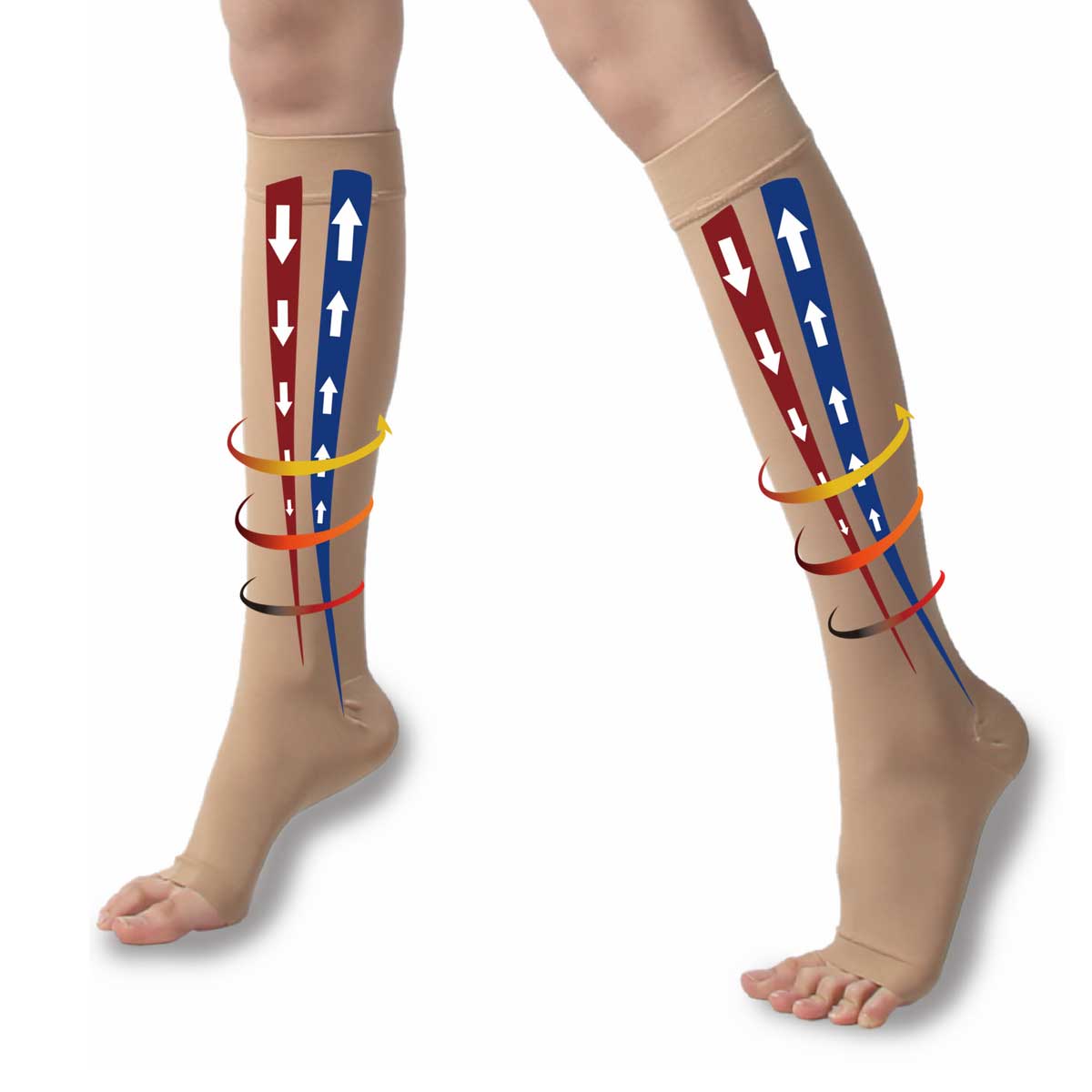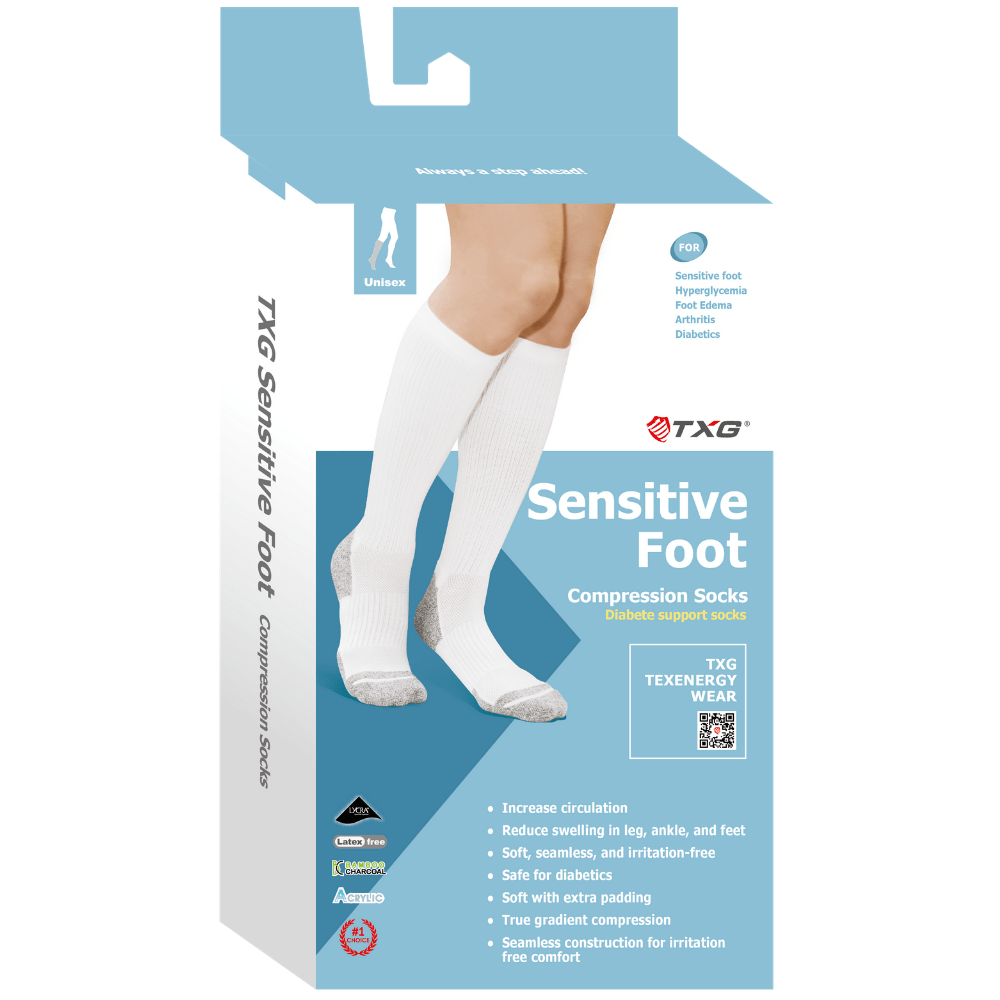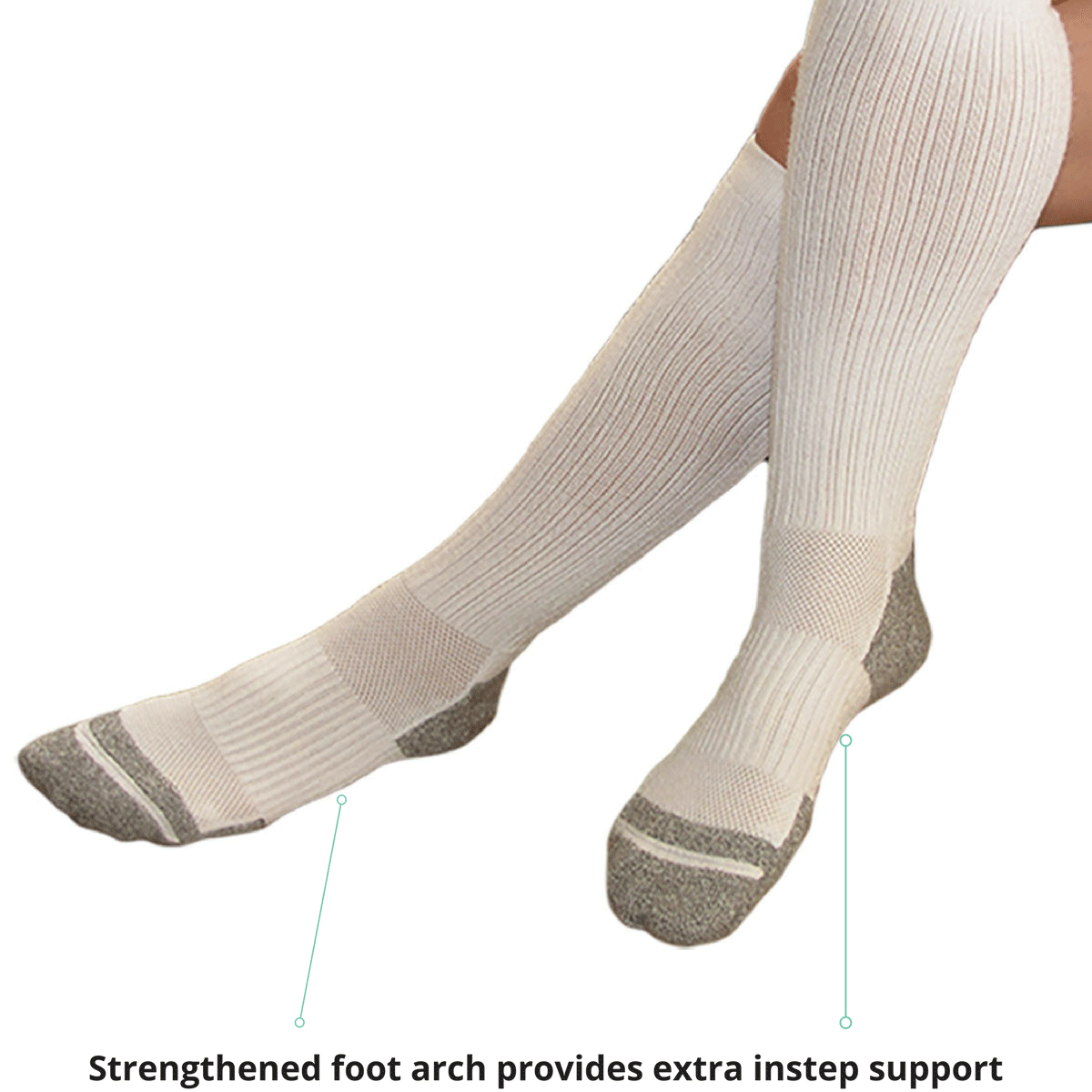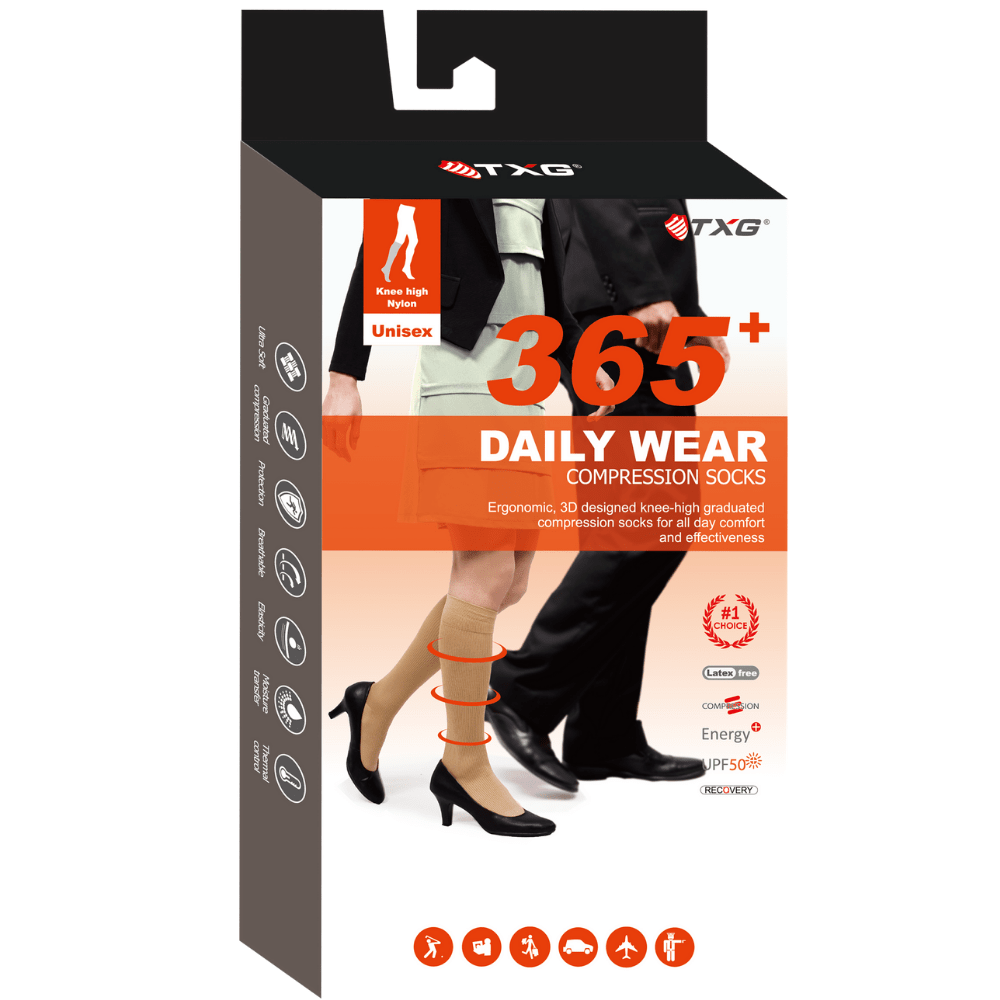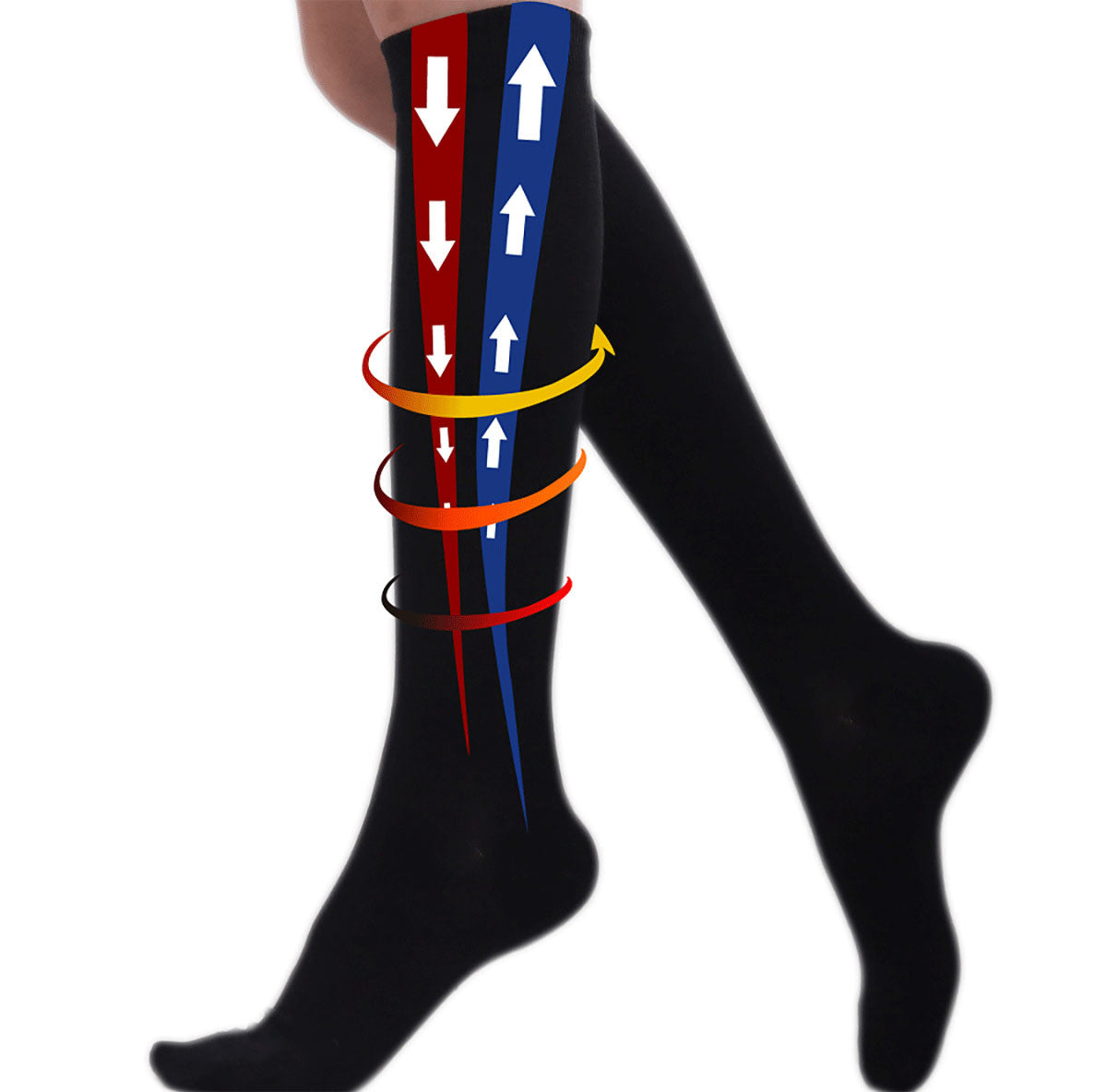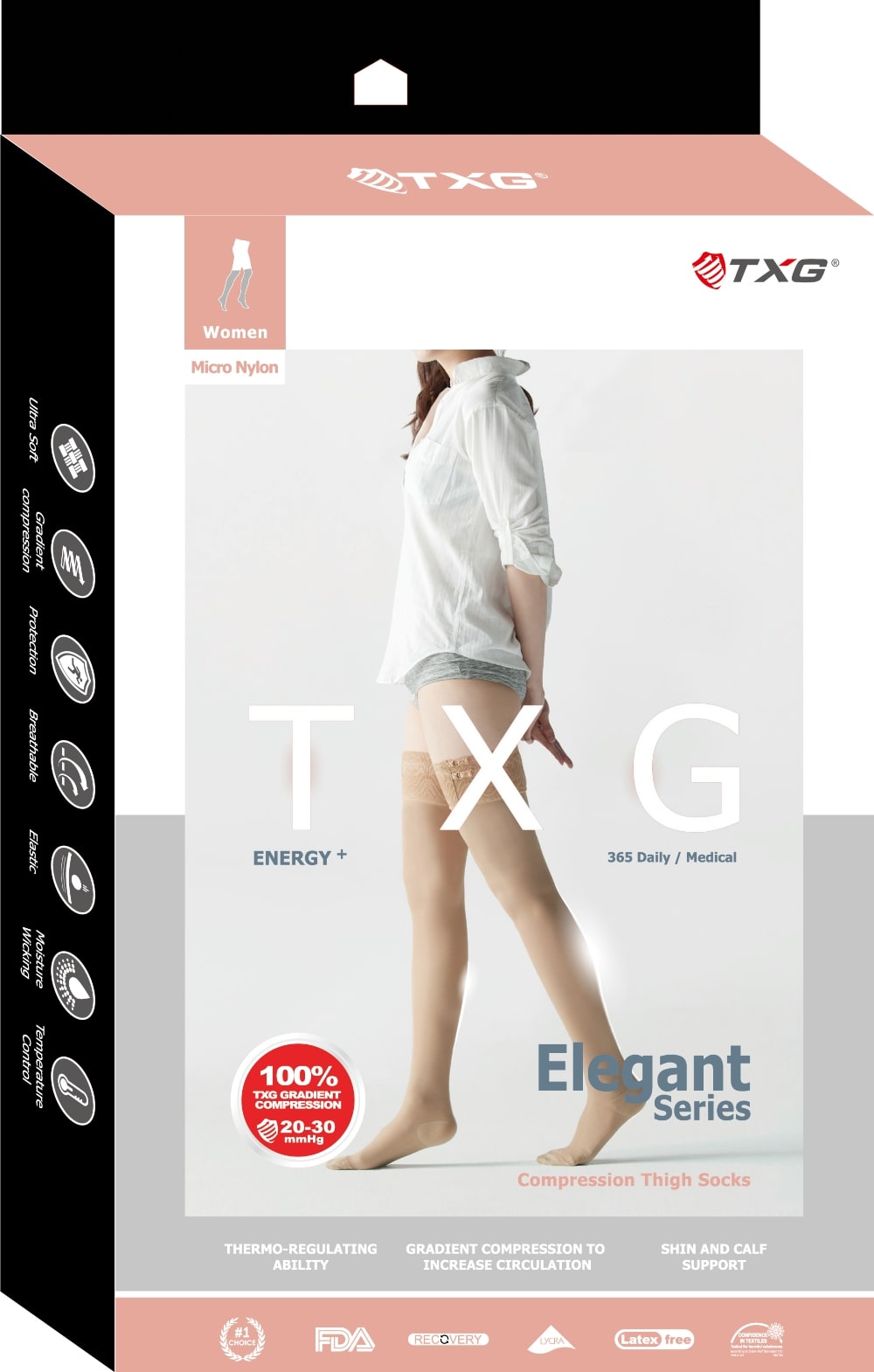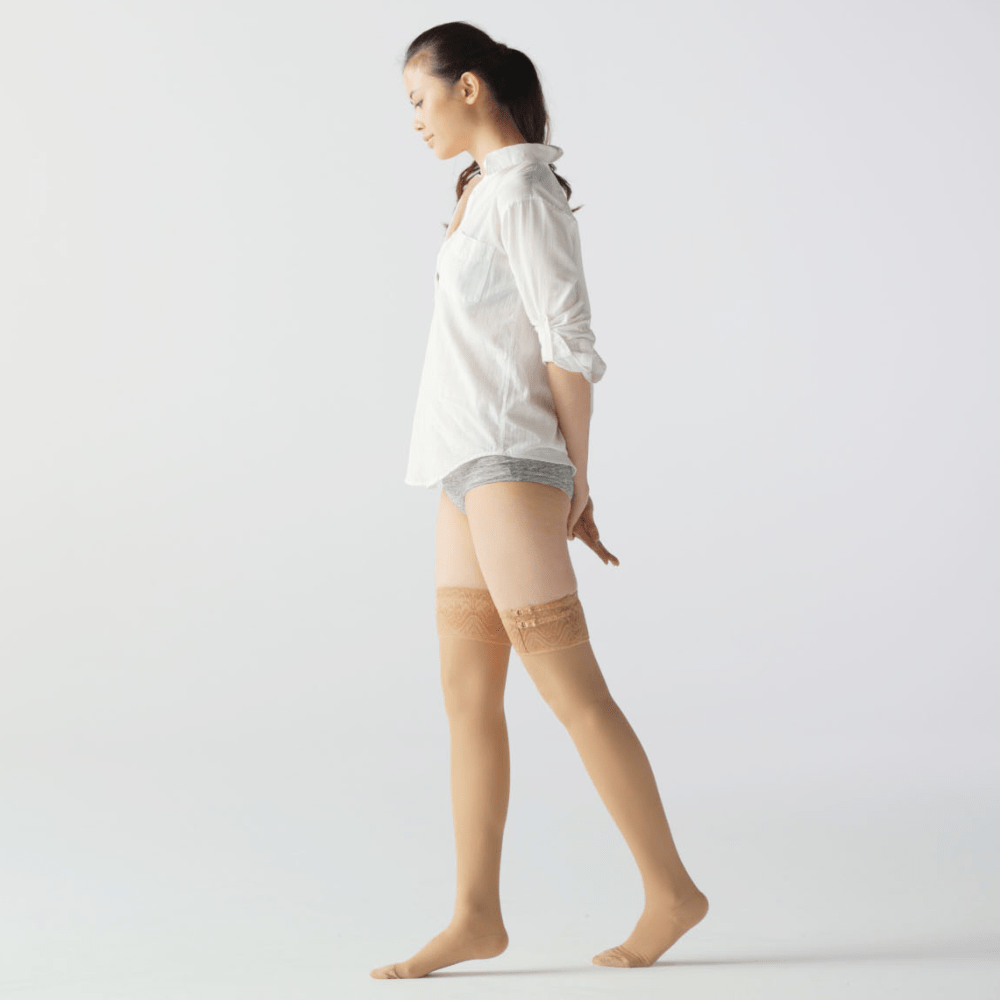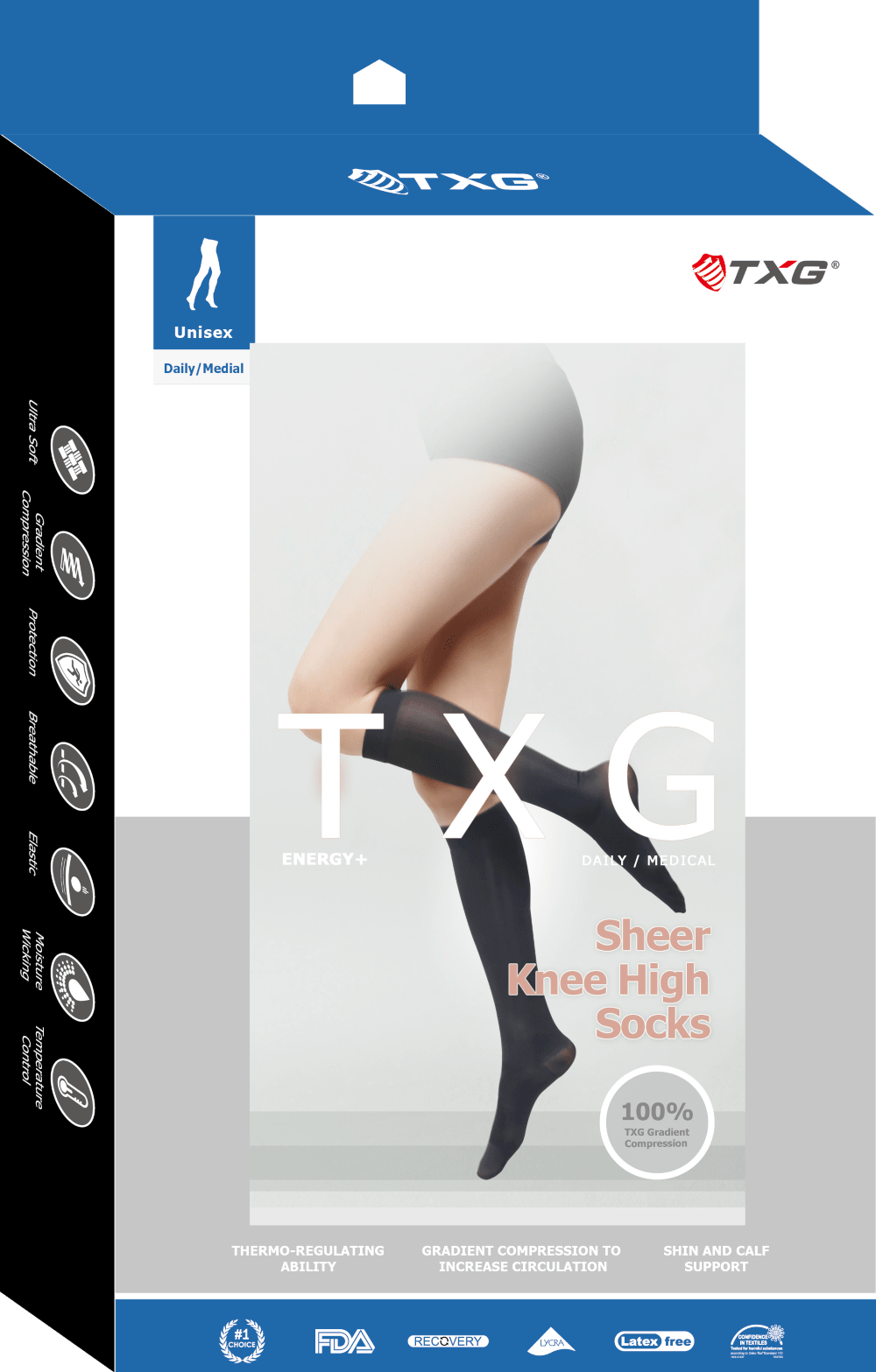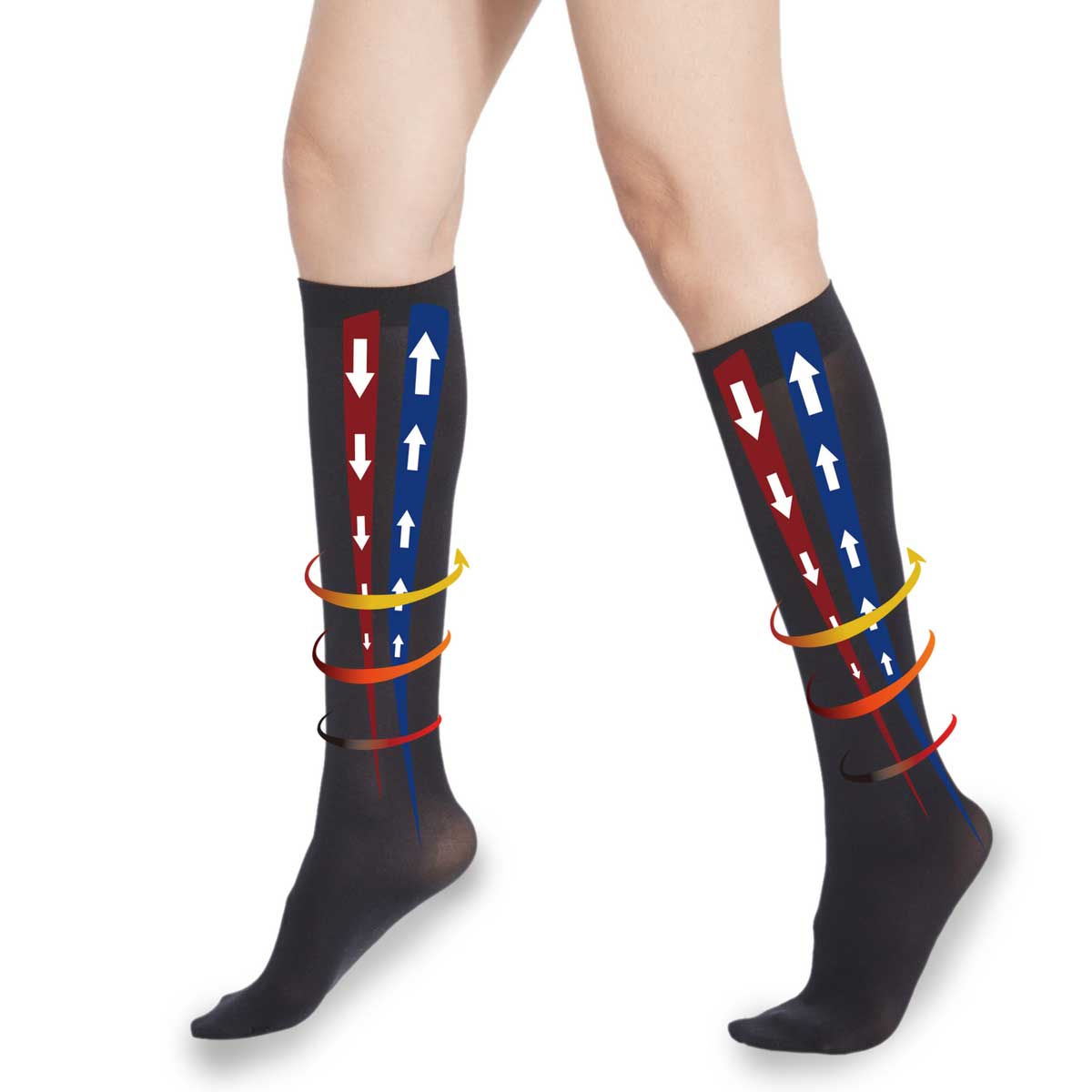Leg Compression Stockings
The fact that you’re visiting this page probably means that you’ve heard good things about compression stockings. Well, it’s all true – using leg compression stockings is an effective, easy and comfortable way of preventing blood clots and deep vein thrombosis (DVT), improving vascular health and reducing swelling and pain associated with pregnancy, air travel and standing for long periods.
Compression garments are available in a variety of styles, sizes and compression strengths, so if you are using them for medical reasons, it’s always a good idea to consult with your doctor to determine your needs. If you want to try leg compression for general health, check out our guide to help you choose the correct pressure.
What Are Leg Compression Socks?
Compression stockings or socks are elasticised, firm-fitting garments that put pressure along the length of your leg. Uniform compression wear has the same pressure all along the full length of the stocking, whereas the more effective graduated compression wear has a higher pressure at the ankle area, with gradually lessening pressure towards the top hem.
The pressure supports the blood vessels and arteries, helping to maintain their correct shape and condition, and preventing blood and fluids from pooling. This action inhibits blood clots and DVT from forming, reduces oedema and pain, as well as helps your circulatory system pump oxygen-rich blood back up to the heart. They also prevent and treat varicose and spider veins and can even give you more energy.
Who Should Wear Leg Compression Stockings?
Almost anybody can wear leg stockings for circulation improvement, prevention of medical conditions and a boost in energy. They are safe, comfortable and easy to integrate into your usual wardrobe, so there’s no reason not to wear them unless you suffer from a medical condition that prevents it. There are some specific uses for compression wear though, including:
- People with (or at risk of) circulatory issues such as diabetes, DVT, varicose veins and similar
- Pregnant people
- People recovering from surgery or people with mobility issues
- People who stand or sit for long periods
- Frequent fliers
- Athletes (hoping to improve performance through blood oxygenation)
For more information on any of our compression wear, or for assistance in choosing the right compression gear for your concerns, contact our team today.
TXG Medical Compression Socks for Women - Comfort Omniease Range TXG Medical Compression Socks - Classic 365+Daily Range TXG Compression Stockings for Men - Gentleman's Comfort Omniease Range TXG Opaque Open Toe Compression Stockings - Thigh High TXG Open Toe Knee High Compression Stockings - Opaque TXG Diabetic Compression Socks - Sensitive Foot TXG Travel Socks - 365+ Classic Unisex Style TXG Compression Socks for Flying - Comfort Cotton Omniease Range for Women TXG Elegant Closed Toe Compression Stockings - Thigh High TXG Sheer Support Knee High Stockings TXG Airplane Compression Socks - Men's Cotton Comfort Omniease Range

